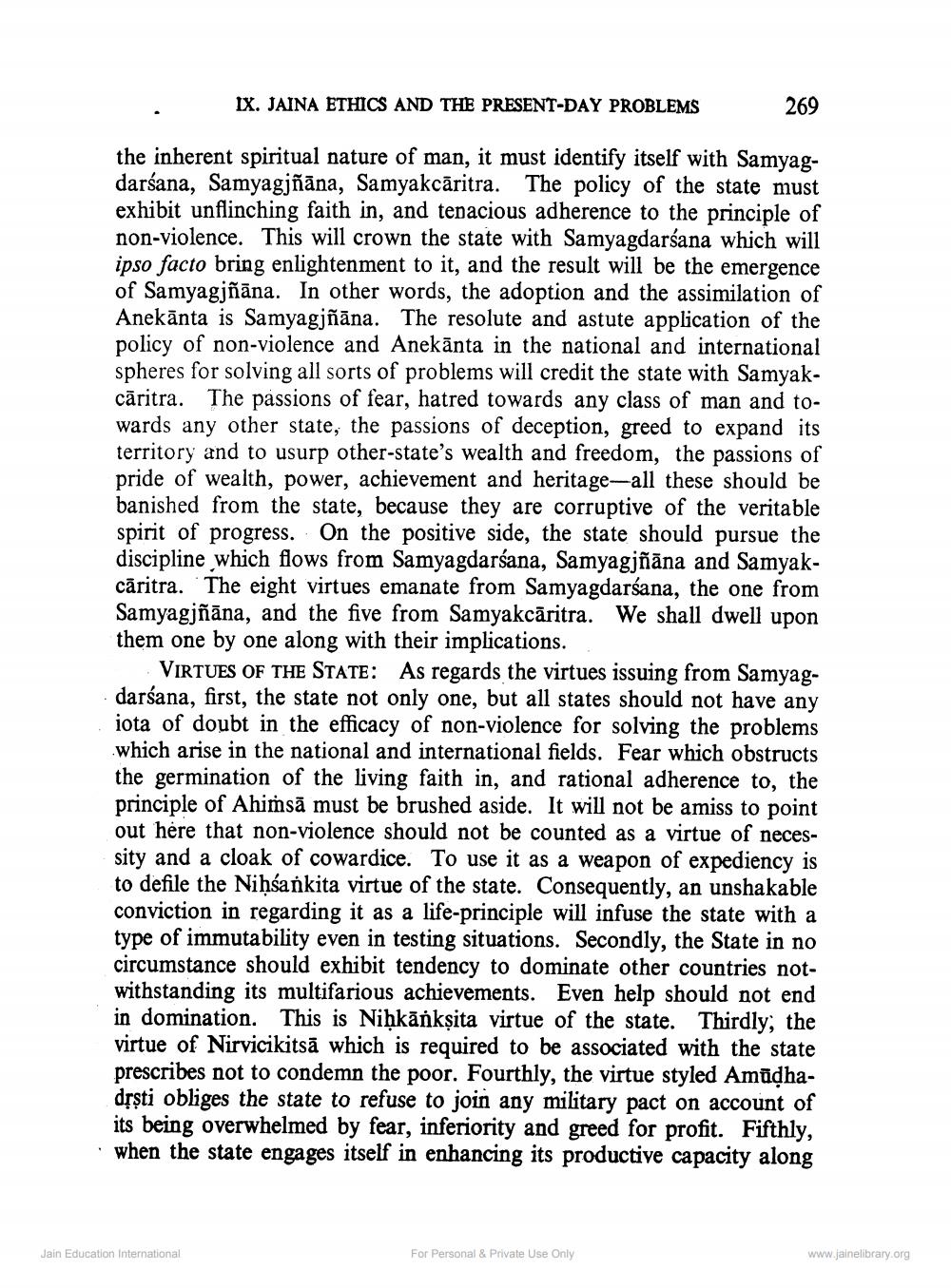________________
IX. JAINA ETHICS AND THE PRESENT-DAY PROBLEMS
269
the inherent spiritual nature of man, it must identify itself with Samyagdarśana, Samyagjñāna, Samyakcāritra. The policy of the state must exhibit unflinching faith in, and tenacious adherence to the principle of non-violence. This will crown the state with Samyagdarśana which will ipso facto bring enlightenment to it, and the result will be the emergence of Samyagjñāna. In other words, the adoption and the assimilation of Anekānta is Samyagjñāna. The resolute and astute application of the policy of non-violence and Anekānta in the national and international spheres for solving all sorts of problems will credit the state with Samyakcāritra. The passions of fear, hatred towards any class of man and towards any other state, the passions of deception, greed to expand its territory and to usurp other-state's wealth and freedom, the passions of pride of wealth, power, achievement and heritage-all these should be banished from the state, because they are corruptive of the veritable spirit of progress. On the positive side, the state should pursue the discipline which flows from Samyagdarśana, Samyagjñāna and Samyakcāritra. The eight virtues emanate from Samyagdarśana, the one from Samyagjñāna, and the five from Samyakcăritra. We shall dwell upon them one by one along with their implications.
VIRTUES OF THE STATE: As regards the virtues issuing from Samyagdarśana, first, the state not only one, but all states should not have any iota of doubt in the efficacy of non-violence for solving the problems which arise in the national and international fields. Fear which obstructs the germination of the living faith in, and rational adherence to, the principle of Ahimsā must be brushed aside. It will not be amiss to point out here that non-violence should not be counted as a virtue of necessity and a cloak of cowardice. To use it as a weapon of expediency is to defile the Nihsankita virtue of the state. Consequently, an unshakable conviction in regarding it as a life-principle will infuse the state with a type of immutability even in testing situations. Secondly, the State in no circumstance should exhibit tendency to dominate other countries notwithstanding its multifarious achievements. Even help should not end in domination. This is Niḥkāńkșita virtue of the state. Thirdly, the virtue of Nirvicikitsā which is required to be associated with the state prescribes not to condemn the poor. Fourthly, the virtue styled Amudhadrști obliges the state to refuse to join any military pact on account of its being overwhelmed by fear, inferiority and greed for profit. Fifthly, when the state engages itself in enhancing its productive capacity along
Jain Education International
For Personal & Private Use Only
www.jainelibrary.org




